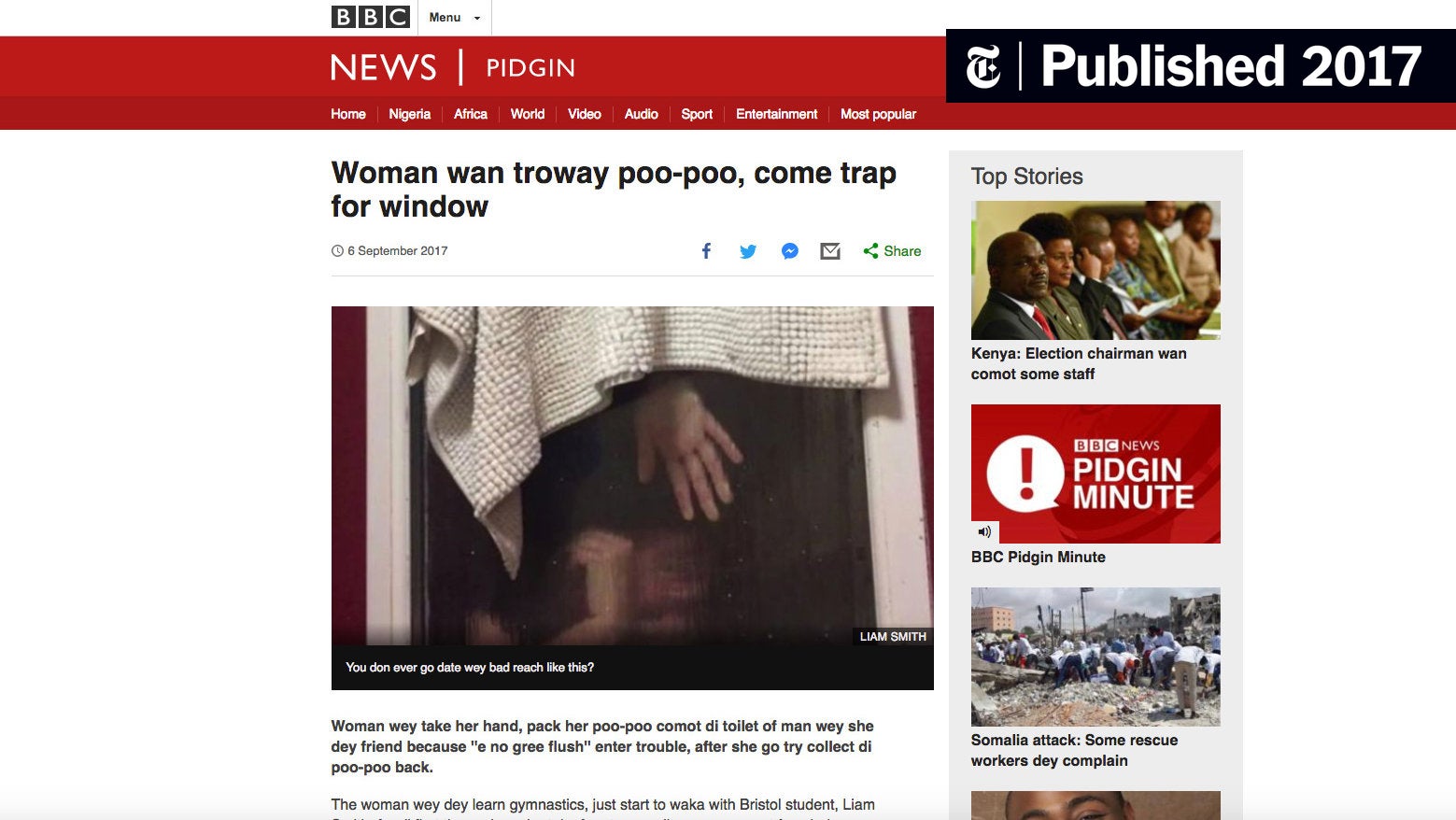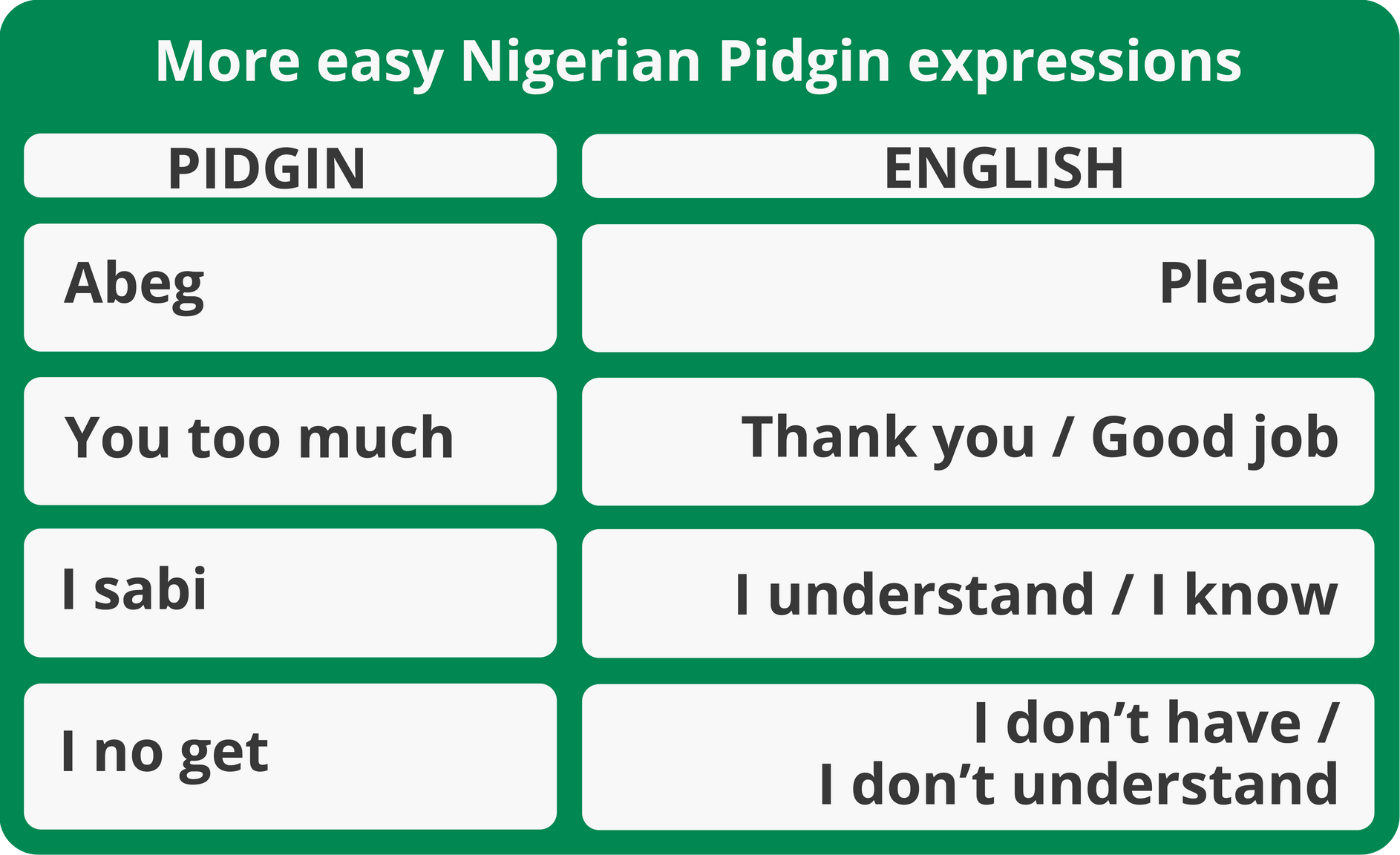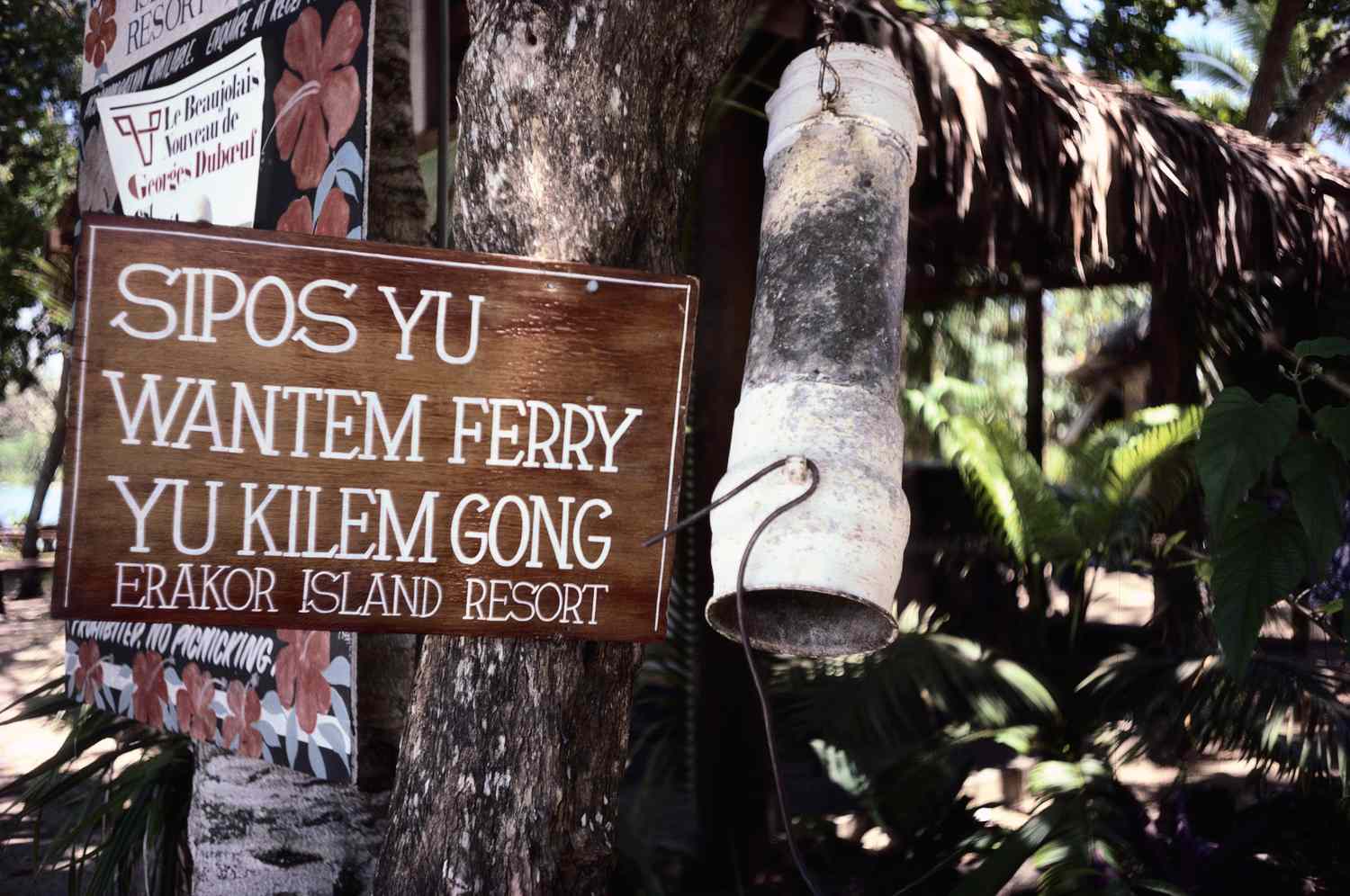By Erika Koutroumpa,
In 2017, BBC launched a 372 million dollar expansion, the largest one since 1940, which involved the translation of the popular news broadcaster into other local dialects across the globe. Amongst the multitude of local dialects and languages across Africa and Southeast Asia, the largest perhaps of the newer branches is that of the English-based pidgin edition, with over 7.5 million listeners tuning in weekly.
Pidgin, is a currently unofficial language spoken across West Africa, with 3-5 million Nigerians using it as a first language, and a further 75 million using it as a second language. It is not recognized formally, but variations of it are used for a large variety of activities other than everyday life, such as political campaigns, tertiary institutions and speeches by public officials, and works of art. This language is the lingua franca of Nigeria, has no official spelling or grammar and its form is evolving day by day, adjusting to the needs of its users.

How did this language come about? Pidgin initially was considered a trade language that emerged in the 17th-18th century due to the need for a lingua franca in the wider area. In West Africa, these mixes include English and French, on the one hand, and local languages on the other. There are variations depending on the colonial past of the country, with ex-French, occupied Senegal using French-dominant pidgin and ex-English colonized Nigeria favoring English-dominant pidgin. English pidgin is considered the most widespread English dialect, spoken by nearly all Nigerian tribes and groups.
Languages are communication system that reflects a cultural group’s traditions, beliefs, and history. Having a common language creates solidarity and instills a sense of national identity and pride within a nation, and this is why multiple countries with diverse populations use an official language for formal engagements and courts of law while also recognizing those used by ethnic minorities. For example, in Indonesia, Bahasa Indonesia, a standardized form of Malay, is used as the common language, created to function as a lingua franca in a country with over 800 languages. It was selected in 1949 as the country’s official language, as a means to promote national unity after gaining independence from the Dutch. Currently, some 17 million Indonesians speak Bahasa Indonesia as a primary language, while 150 million use it as a second language.

For decades, standardized English has been used as the official state language, to transmit the interests, ideas about culture, and political order of the colonizers to the indigenous majority. To increase the feeling of a typical Nigerian identity, indigenous languages started being used in popular media. Some people view pidgin as an inferior language, used stereotypically by the lower classes, while others appreciate the opportunity it has given for communication across the region. Through this move, BBC has not only managed to increase the sphere of the news broadcaster’s influence across the region- especially among the large undereducated population- but also to destigmatize the dialect.
There have been efforts to standardize the language, with a 2009 group of academics, Naija Languej Akademi developing a pidgin reference guide with an alphabet, spelling guide, and a basic history of the language. Standardizing the language is one step closer to it replacing English and placing Pidgin as the official language of the region, creating a new post-colonial era. However, given the speed with which the language progresses and the variations due to the different influences from tribal languages of the region, this feat is yet to be accomplished.
To conclude, pidgin is an evolving language in the region of West Africa that has been met with increasing popularity. The popularity of the new BBC branch using this dialect has shown its potential as a lingua franca of the region, with its simpler structure making information more accessible to the underprivileged. Perhaps the success of BBC pidgin is a sign that pidgin should be further destigmatized and play a more crucial role in communication in the region?
References
-
“Why West Africa’s pidgins deserve full recognition as official languages”, Edosa James Edionhon, 23 August 2018. theconversation.com. Available here
-
“BBC launches pidgin portal”, Language Magazine, 22 August 2017. languagemagazine.com. Available here
-
Ruth, A Linguistic Study of the Use of Pidgin English in BBC News, Nigeria (December 13, 2021)
-
“The BBC’s newest service uses a language made up of street slang”, Khanya Mtshali, 22 August 2017. qz.com. Available here
-
“Pidgin- West African lingua franca”, 16 November 2016. bbc.com. Available here
-
“BAHASA INDONESIAN, 730 OTHER LANGUAGES IN INDONESIA”, factsanddetails.com. Available here




